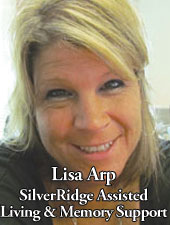Life is full of the unexpected, but that doesn’t always mean that you are forced to be reactive in handling unplanned life changes. In fact, there are plenty of opportunities to be proactive in preparing yourself for the unknown. In these situations, it is crucial to know which local resources are available should you ever need to call upon them for their expertise or assistance.
For business owners, any number of situations may arise that were unplanned and above all, appropriate insurance coverage is a must. There are several critical types of coverage for a company to consider thoroughly when discussing insurance with their agent: Co-insurance, Business Income with Extra Expense and Employment Practice Liability Insurance.
Coinsurance– A policy may contain a coinsurance provision requiring that the limits of insurance be a minimum percentage of the insurable value of your property. If the limits of your policy are less than what is required by this provision, then any claim payment made to you may be reduced by the same percentage as the deficiency. For example, covered property worth $100,000 may require a minimum of 80%, or $80,000, of coverage for compliance with the policy’s coinsurance requirement. If only $60,000 of coverage is carried (25% less than the required $80,000), then any loss payment would be reduced by 25%.
Business Income and Extra Expense– This coverage insures you against loss of business income (including any continuing normal operating expenses) that you experience because of a suspension of your business when insured property has been damaged by a covered peril. It also covers those necessary extra expenses you incur to operate your business during that period of time your damaged property is being repaired or replaced.
Employment Practice Liability Insurance– A relatively new form of liability insurance. It provides protection for an employer against claims made by employees, former employees, or potential employees. It covers discrimination (age, sex, race, disability, etc.), wrongful termination of employment, sexual harassment, and other employment-related allegations.
 Chad Vacek of BW Insurance Agency states, “We tend to see life changing claims with business owners, whether it is hail, fire or simply an accident. A sudden and unexpected claim can be costly and paralyzing to a business if not properly covered–often times damaging enough to cause significant financial hardship that may even lead to the closing of that business. Many businesses owners have not been walked through the steps to make sure they are properly insured to handle something like a fire in a building that causes significant damage. They often times find out that they do not have enough coverage on their building, business equipment and inventory. Additionally, they may not have considered the cost it would take to re-open at another location and pay employees to continue working with limited income since the new building is most likely not ready to be operational.
Chad Vacek of BW Insurance Agency states, “We tend to see life changing claims with business owners, whether it is hail, fire or simply an accident. A sudden and unexpected claim can be costly and paralyzing to a business if not properly covered–often times damaging enough to cause significant financial hardship that may even lead to the closing of that business. Many businesses owners have not been walked through the steps to make sure they are properly insured to handle something like a fire in a building that causes significant damage. They often times find out that they do not have enough coverage on their building, business equipment and inventory. Additionally, they may not have considered the cost it would take to re-open at another location and pay employees to continue working with limited income since the new building is most likely not ready to be operational.
Another common scenario is the employer asking an employee to make a life change when downsizing their workforce. If this delicate situation is not handled correctly, it can lead to a claim that causes the employee to respond in a rather negative fashion. Many times as a result, disgruntled employees will make accusations about the safety and integrity of a workplace that causes lawyers to be involved. This type of claim can many times be covered through appropriate Human Resource Training. However, when emotions are high a claim may still arise and proper insurance can help pay for a good defense for the employer.
Most importantly overall, just because unplanned life changes could occur doesn’t mean you can’t plan for them. At BW Insurance, we tailor each insurance need–both personal and business–so that when the unexpected does happen, you are prepared.”
 Illness and injury can also be very traumatic for their unsuspecting victims, and being prepared to make decisions in dealing with something of this nature can alleviate a lot of stress. Mindy Crouch of Pando Geriatrics says, “In my experiences, crisis such as a fall or a stroke are often devastating because they will change lives drastically. Most people don’t plan for the worst and when they lose control of their life and the decisions that need to be made about their health, living arrangements and normal routine, this causes anxiety, depression, anger and grief. I recommend that people plan ahead and talk with their family before a tragedy happens as to what their wishes are. It is then easier on the family to make the hard decisions, such as how much care to give or which nursing home to be placed in, if their loved one previously stated their preference. After the incident, therapy helps the client to process the loss that they just experienced. Therapy also helps one to communicate their wishes and emotions and allows for the process of the grief. Life happens and it isn’t always the smooth, sunny road that we plan to travel. It is okay to feel a range of emotions and when you need someone to talk too, mental health therapy can be very beneficial.”
Illness and injury can also be very traumatic for their unsuspecting victims, and being prepared to make decisions in dealing with something of this nature can alleviate a lot of stress. Mindy Crouch of Pando Geriatrics says, “In my experiences, crisis such as a fall or a stroke are often devastating because they will change lives drastically. Most people don’t plan for the worst and when they lose control of their life and the decisions that need to be made about their health, living arrangements and normal routine, this causes anxiety, depression, anger and grief. I recommend that people plan ahead and talk with their family before a tragedy happens as to what their wishes are. It is then easier on the family to make the hard decisions, such as how much care to give or which nursing home to be placed in, if their loved one previously stated their preference. After the incident, therapy helps the client to process the loss that they just experienced. Therapy also helps one to communicate their wishes and emotions and allows for the process of the grief. Life happens and it isn’t always the smooth, sunny road that we plan to travel. It is okay to feel a range of emotions and when you need someone to talk too, mental health therapy can be very beneficial.”
 Specifically regarding seniors, Lisa Arp of SilverRidge Assisted Living and Memory Support adds, “Unplanned life events for the elderly are numerous, but the most common are falls. Someone could break a hip at their home and their life will change dramatically. Whether a surgery fix such as a partial or total replacement is necessary or not, the resident will likely undergo a hospital stay and then a period of time in a rehabilitation center. This could change their life to the extreme of having to move from their home to an assisted living facility or maybe even a skilled facility, depending on how well their rehabilitation goes. Our concern at SilverRidge Assisted Living is that folks do a lot of activities that they shouldn’t such as mowing lawn, shoveling or climbing on ladders, etc. We are well aware that folks would love to remain in their homes as long as possible; however, there comes a time when a move may be necessary to prevent these unplanned events and improve quality as well as longevity of life. Open dialogue about these facilities and what they provide is a very important, but often difficult, step to take. We know it is hard to bring up to our loved ones, but it is necessary. On my radio show ‘Aging Matters with Lisa’ I discuss all of these options for seniors to try to keep them informed on what is out there for them. It airs from 4-5 p.m. on 660 AM KCRO. Facilities are not like they used to be; independence is still achievable and you can still do many of the things that you are used to. Especially regarding family members, if you think your loved is close to making such a move for their safety it is really important to create open dialogue, visit facilities and give them a chance to be a part of the process. That way they still have a feeling of dignity and respect and as a result, they may not be as resistant in moving.”
Specifically regarding seniors, Lisa Arp of SilverRidge Assisted Living and Memory Support adds, “Unplanned life events for the elderly are numerous, but the most common are falls. Someone could break a hip at their home and their life will change dramatically. Whether a surgery fix such as a partial or total replacement is necessary or not, the resident will likely undergo a hospital stay and then a period of time in a rehabilitation center. This could change their life to the extreme of having to move from their home to an assisted living facility or maybe even a skilled facility, depending on how well their rehabilitation goes. Our concern at SilverRidge Assisted Living is that folks do a lot of activities that they shouldn’t such as mowing lawn, shoveling or climbing on ladders, etc. We are well aware that folks would love to remain in their homes as long as possible; however, there comes a time when a move may be necessary to prevent these unplanned events and improve quality as well as longevity of life. Open dialogue about these facilities and what they provide is a very important, but often difficult, step to take. We know it is hard to bring up to our loved ones, but it is necessary. On my radio show ‘Aging Matters with Lisa’ I discuss all of these options for seniors to try to keep them informed on what is out there for them. It airs from 4-5 p.m. on 660 AM KCRO. Facilities are not like they used to be; independence is still achievable and you can still do many of the things that you are used to. Especially regarding family members, if you think your loved is close to making such a move for their safety it is really important to create open dialogue, visit facilities and give them a chance to be a part of the process. That way they still have a feeling of dignity and respect and as a result, they may not be as resistant in moving.”
 Rehabilitation is almost always necessary for individuals of all ages due to an injury sustained through accidental circumstances or a surgery that may have been somewhat, or entirely, unexpected. Joanne Carlberg of Good Samaritan Society-Millard explains, “The unplanned life changes we see most often are injuries or surgery. Injuries from falls are the most common. Whether you fell at your home cleaning the gutters or tripped going down the stairs, both can cause major injuries such as broken bones that require surgery to repair. Even going home from the hospital with someone to help care for you can be very difficult if not impossible. That is where our Center for Physical Rehabilitation steps in to serve those who need rehabilitation following hospitalization for surgery, injury or illness. Our post-acute care provides 24-hour skilled nursing and focuses on helping people of all ages recover as quickly as possible and return home. Our rehabilitation services include physical, occupational or speech therapy to help you get back to functioning on your own. We provide comfortable, private suites where clients stay anywhere from a few days to a couple of weeks while they recuperate. Our therapists work with clients to help them regain muscle strength, balance, improve coordination, control or alleviate acute or chronic pain and teach techniques to help each client reach their individual goals. Our therapists also conduct home safety evaluations to ensure that the home has the needed equipment and that the client has learned the proper techniques to succeed.
Rehabilitation is almost always necessary for individuals of all ages due to an injury sustained through accidental circumstances or a surgery that may have been somewhat, or entirely, unexpected. Joanne Carlberg of Good Samaritan Society-Millard explains, “The unplanned life changes we see most often are injuries or surgery. Injuries from falls are the most common. Whether you fell at your home cleaning the gutters or tripped going down the stairs, both can cause major injuries such as broken bones that require surgery to repair. Even going home from the hospital with someone to help care for you can be very difficult if not impossible. That is where our Center for Physical Rehabilitation steps in to serve those who need rehabilitation following hospitalization for surgery, injury or illness. Our post-acute care provides 24-hour skilled nursing and focuses on helping people of all ages recover as quickly as possible and return home. Our rehabilitation services include physical, occupational or speech therapy to help you get back to functioning on your own. We provide comfortable, private suites where clients stay anywhere from a few days to a couple of weeks while they recuperate. Our therapists work with clients to help them regain muscle strength, balance, improve coordination, control or alleviate acute or chronic pain and teach techniques to help each client reach their individual goals. Our therapists also conduct home safety evaluations to ensure that the home has the needed equipment and that the client has learned the proper techniques to succeed.
Unplanned life changes can take a toll on the mind as well as the body. That is why we have a full time Chaplain and Social Workers on staff to help clients deal with this life setback and to help plan for their return home. Once you are home you can continue to receive therapy with our out-patient services that offer support and follow-up treatments.”
 Coaching and counseling can greatly help in addressing and responding to unplanned life changes for individuals at any age. Julie Strzyz, Personal Growth and Leadership Coach at Envision Success Inc., says, “The most difficult aspect(s) of unplanned life changes for our clients can be the emotions associated with and resulting from the forced change: the shock, denial, despair, anger, blame, and sometimes perceived betrayal. An unplanned change is just that—unplanned—and therefore, unexpected. Humans are creatures of habit and we tend to accept certain things without really questioning them, thus making them ‘the norm’ of our everyday lives. But once the norm is challenged, it is important to recognize the opportunities that may be available. Some of the best strategies and methods for addressing and dealing with unplanned life changes are:
Coaching and counseling can greatly help in addressing and responding to unplanned life changes for individuals at any age. Julie Strzyz, Personal Growth and Leadership Coach at Envision Success Inc., says, “The most difficult aspect(s) of unplanned life changes for our clients can be the emotions associated with and resulting from the forced change: the shock, denial, despair, anger, blame, and sometimes perceived betrayal. An unplanned change is just that—unplanned—and therefore, unexpected. Humans are creatures of habit and we tend to accept certain things without really questioning them, thus making them ‘the norm’ of our everyday lives. But once the norm is challenged, it is important to recognize the opportunities that may be available. Some of the best strategies and methods for addressing and dealing with unplanned life changes are:
1. Take an accurate and truthful picture of the situation. Remove emotion, blame and excuses.
2. Take time to evaluate your ideal situation – beyond ‘the norm’ that you have been used to.
3. Take steps – no matter how big or small – to get yourself to ‘the ideal.’ This may include hiring a coach or surrounding yourself with colleagues and allies who support you or even going at it alone. The important thingis to take the steps and leverage your possibilities!
4. Give yourself the opportunity to fail, try again, fail, and try again until you get to ‘ideal.’
We assist our clients with these changes by helping them define their priorities and values so they can focus on the things they really want to spend time on: the things that support their priorities and values. We are in our clients’ corners, supporting them and challenging them to explore other opportunities and keep moving forward. We do not judge their values, thoughts, or views. When clients have that someone in their corner who sees them as they truly are, it becomes much easier to figure out where they would like to go and what they would like to do.
Coaching can benefit someone who is experiencing unplanned life changes with the reasons listed above as well as the following:
1. The client has an individual working for and with them to create a vision and action plan to being the best person they can be – at work, at home, in the community, etc.
2. The client has an individual working for and with them to help get them out of their comfort zone – ‘the norm’, if you will.
3. The client has an individual working for and with them to help them weed through the negative self-talk and gain a clear perspective of where they are and where they want to go.
Often unplanned or unexpected changes encourage or force us to take risks that we perhaps should have taken long ago. It may be scary and there may be some mistakes made in the future, but without those you won’t be living life to its fullest. In the words of the author, Paulo Coelho: ‘You have to take risks. We will only understand the miracle of life fully when we allow the unexpected to happen.’”
 Amanda Hebner of Focus C3 (Counseling, Coaching and Consulting) agrees that fear of the unknown is one of the most difficult aspects of unplanned life changes. She explains, “For most of us, we can deal with things if we know how they are going to turn out. However, when we experience an unplanned life change we usually do not know the outcomes of these changes and many times do not feel like we have control over the outcomes. Most people are comfortable with continuity and routine in their lives and only like things to change when planned. It is important to take a moment to recognize that change does not always have to be bad, even if it appears to be on the surface. Recognizing your strengths and drawing on those to help yourself deal with things that may arise is always a good start. Knowing that you can deal with things as they come and that you do not have to have all the answers now is another thing to consider. If you think that you are not capable or strong enough to deal with the situation, consider other times when you have dealt with change or adversity and remember that you survived those times in addition to seeking out others to help you. Sometimes ‘others’ may mean a professional to help you deal with your feelings and emotions around that change so that you can make decisions clearly and logically. Professionals can also help to deal with past issues that may be affecting your ability to deal with the changes as well as a possible lack of outside support from others in your life. Sometimes these changes may occur because of a mental illness that has not been previously diagnosed or addressed, and it is important to gain help from a qualified professional who can recognize those issues and help. Before an unplanned change occurs, a professional will help you address issues that may be stopping you from dealing with life in a healthy manner. This way, when an unplanned life change happens you will have the tools and ability to deal with it.”
Amanda Hebner of Focus C3 (Counseling, Coaching and Consulting) agrees that fear of the unknown is one of the most difficult aspects of unplanned life changes. She explains, “For most of us, we can deal with things if we know how they are going to turn out. However, when we experience an unplanned life change we usually do not know the outcomes of these changes and many times do not feel like we have control over the outcomes. Most people are comfortable with continuity and routine in their lives and only like things to change when planned. It is important to take a moment to recognize that change does not always have to be bad, even if it appears to be on the surface. Recognizing your strengths and drawing on those to help yourself deal with things that may arise is always a good start. Knowing that you can deal with things as they come and that you do not have to have all the answers now is another thing to consider. If you think that you are not capable or strong enough to deal with the situation, consider other times when you have dealt with change or adversity and remember that you survived those times in addition to seeking out others to help you. Sometimes ‘others’ may mean a professional to help you deal with your feelings and emotions around that change so that you can make decisions clearly and logically. Professionals can also help to deal with past issues that may be affecting your ability to deal with the changes as well as a possible lack of outside support from others in your life. Sometimes these changes may occur because of a mental illness that has not been previously diagnosed or addressed, and it is important to gain help from a qualified professional who can recognize those issues and help. Before an unplanned change occurs, a professional will help you address issues that may be stopping you from dealing with life in a healthy manner. This way, when an unplanned life change happens you will have the tools and ability to deal with it.”
She adds, “Many times when an unplanned event or change occurs in someone’s life it can be difficult to know where or what to do next. Taking a deep breath and recognizing that the change is not the end of the world but instead may just be a redirection of life’s journey, can help clear your mind. Also, if you are carrying the burdens of yesterday and the ‘what ifs’ of tomorrow it can be more difficult to handle today, so it may be necessary to seek help.”
Change is one of the aspects of life that can be particularly difficult but as a constant variable, we can always control how we respond to it. Being prepared to respond when a life change is unplanned is particularly valuable, and finding the right resources to help you with this will make all the difference in the world.

